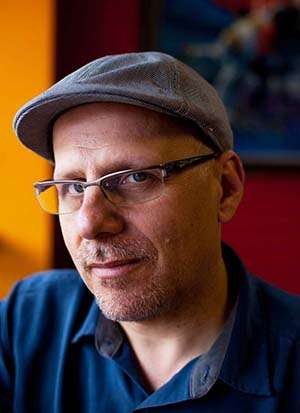How Chaos Makes Us More Creative

Why have certain places at certain times become hubs of innovation and novel thought? That's the question at the heart of travel writer Eric Weiner's latest book, The Geography of Genius: A Search for the World's Most Creative Places, from Ancient Athens to Silicon Valley. By examining the cultures that fostered history's greatest minds, he pieced together a list of ingredients for creativity, some of which may surprise you.
Reason TV Managing Editor Meredith Bragg sat down with Weiner in January. For a video of the interview, visit reason.com.
Q: Let's talk about chaos.
A: A little bit of chaos is good. There was a neuroscientist named Walter Freeman who hooked up rabbits to [electroencephalograms] and then introduced them to smells. He noticed that whenever the rabbits were introduced to a new smell, their brains entered a chaotic state—what Freeman called the I-don't-know state. And if you think about it, all creative breakthroughs are preceded by that I-don't-know state.
In all great people and great places there's an element of tension and discomfort, and often there's a catastrophe that precedes a golden age. It's Athens being sacked by the Persians and then being rebuilt by Pericles and building the Acropolis and these wonderful marvels that we still admire today. Or Florence being hit by the Black Death, and no more than two generations later we have the blossoming of the Renaissance. Bad things can lead to good things.
Q: And that goes into the idea that you need disruption.
A: I think so. If you're fully invested in the status quo, you're unlikely to create genius because you're too comfortable. And if I look at the individuals in my book, they all were, to some extent, outsiders.
Q: There are lot of places, including Qatar and London, that are trying to build the [next] Silicon Valley. And inevitably they fail.
A: I wish I could tell you there's a formula and if you apply it you'll have the next Silicon Valley. I'd be a very wealthy man if I had that formula. I can't do that because there's no formula. These efforts have failed because you can't transplant a culture. And Silicon Valley, I really believe, is a culture. Silicon Valley's success has almost nothing to do with technology. Its product is technology, but the means is social and cultural.
One thing that it has in common with ancient Athens is both were moochers. They borrowed, or if you're feeling less generous, stole, from other places. Plato said, "What the Greeks borrow from foreigners, they perfect." And look at Silicon Valley. The cellphone wasn't invented there. The idea of venture capital wasn't invented there. But what does Silicon Valley do? It perfects these ideas. It says, "Aha! That's a good idea. That'll fly." And then it provides a runway for it to take off.
Q: You say we need to begin thinking of creativity as a public good. What do you mean by that?
A: I'll tell you what I don't mean: that the government should be in the creativity business.
There are very talented classical composers today, but no one we would consider on the level of a Mozart. Why is that? Two reasons. First, the best and the brightest now are going to head off to Silicon Valley and do a startup. And second, even if you do become a darn good [classical composer], you don't get the recognition Mozart once did. If you look at creativity as a commons you'd say, "Of course [Silicon Valley] is where our geniuses are going to be," because we value technology. If we were to value something else, we would get a different kind of genius.
This article originally appeared in print under the headline "How Chaos Makes Us More Creative."


Show Comments (3)